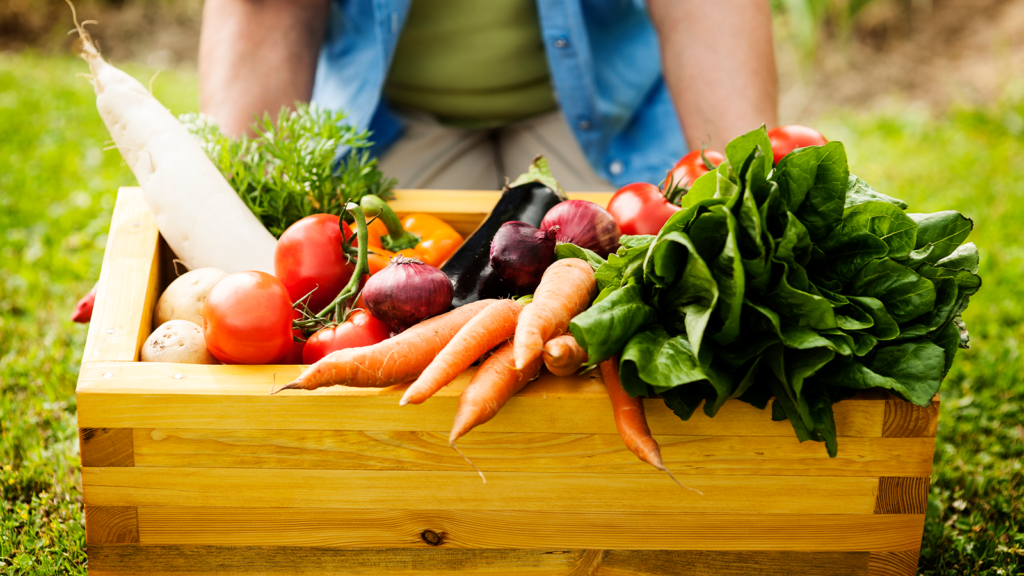Introduction: The Organic Obsession
In today’s era of conscious consumption, the term “organic” resonates deeply with consumers. It evokes notions of purity, health, sustainability, and, most importantly, trust. Supermarket shelves are increasingly adorned with products boasting the label “100% Organic.” However, the reality is more nuanced—there is no such thing as food that is truly 100% organic.
This article aims to peel back the layers behind the label, demystify what organic really means, and explain why organic food remains a vital choice despite the myths surrounding it.
What is Organic Food, Really?
Organic food refers to products cultivated without the use of synthetic fertilizers, chemical pesticides, genetically modified organisms (GMOs), or artificial additives. The core principles of organic farming include:
- Natural Fertilization: Use of compost or manure instead of chemical fertilizers.
- Sustainable Pest Management: Crop rotation and biological pest control methods replace synthetic pesticides.
- Ethical Animal Rearing: Animals are raised without antibiotics or growth hormones.
- Non-GMO Seeds: Seeds used are free from genetic modification.
Organic farming goes beyond the final product—it is a holistic approach that prioritizes soil health, biodiversity, and ecosystem balance. This commitment to environmental stewardship is as critical as the food that reaches your plate.
Benefits of Choosing Organic
While the notion of “100% organic” is more aspirational than factual, organic food offers tangible benefits:
- Reduced Pesticide Exposure: Organic produce contains significantly fewer pesticide residues compared to conventionally grown alternatives.
- Enhanced Nutrient Content: Healthier soil management practices lead to more nutrient-dense crops.
- No GMOs or Hormones: Particularly important in dairy and meat products, ensuring natural growth processes.
- Environmental Sustainability: Organic farming reduces chemical runoff, conserves water, and promotes biodiversity.
- Support for Small Farmers: Organic certification often empowers small-scale, environmentally conscious farmers, fostering local economies.
The Myth of 100% Organic
Achieving absolute organic purity is practically impossible due to several uncontrollable factors:
- Environmental Contamination: Airborne pollutants, water sources, and proximity to conventional farms can introduce non-organic elements.
- Cross-Contamination: During storage, packaging, or transportation, traces of GMOs or synthetic chemicals may inadvertently mix.
- Seed Purity: Truly untouched seeds are rare, as many have some degree of modern genetic influence.
- Complex Supply Chains: Ingredients sourced globally make it challenging to verify every step of the production process.
Certification bodies recognize these realities and typically allow a 95% organic content threshold for products to be labeled as “certified organic,” acknowledging a permissible margin for non-organic components.
So… Is Organic Still Worth It?
Undoubtedly, yes. While perfection is unattainable, the intention behind organic farming and consumption is what truly matters. Choosing organic contributes to:
- Lower Chemical Intake: Minimizing exposure to synthetic pesticides and additives.
- Ethical Farming Practices: Supporting humane and environmentally responsible agriculture.
- Environmental Protection: Promoting biodiversity, reducing pollution, and conserving natural resources.
- Long-Term Health Benefits: Encouraging a diet rich in nutrient-dense, minimally processed foods.
Being informed empowers consumers to make conscious choices. Organic eating is a progressive journey toward better health and sustainability—not a quest for unattainable perfection.
At Food Whisperer, Here’s What Organic Means to Us
At Food Whisperer, we embody the organic philosophy with transparency and accountability. Our commitment includes:
- Sourcing Pesticide-Free Produce: Procuring ingredients from our own farms and partnering exclusively with certified local farms.
- Non-GMO Ingredients: Avoiding artificial flavors, preservatives, and genetically modified components.
- Minimal Processing: Ensuring maximum nutritional value in every meal we craft using state-of-the-art technology.
- Integrity at Every Step: Upholding honesty in our sourcing, preparation, and communication.
We do not claim the impossible but promise unwavering integrity and dedication to your health and the planet.
Conclusion: Choose Progress Over Perfection
While the label “100% organic” may be a myth, the pursuit of better, cleaner, and more responsible food is very real. Choosing organic is more than a dietary decision—it is a vote for a sustainable and ethical food system.
Next time you select a product or a meal, don’t seek perfection. Instead, look for intention. Your choices today shape the food landscape of tomorrow.

